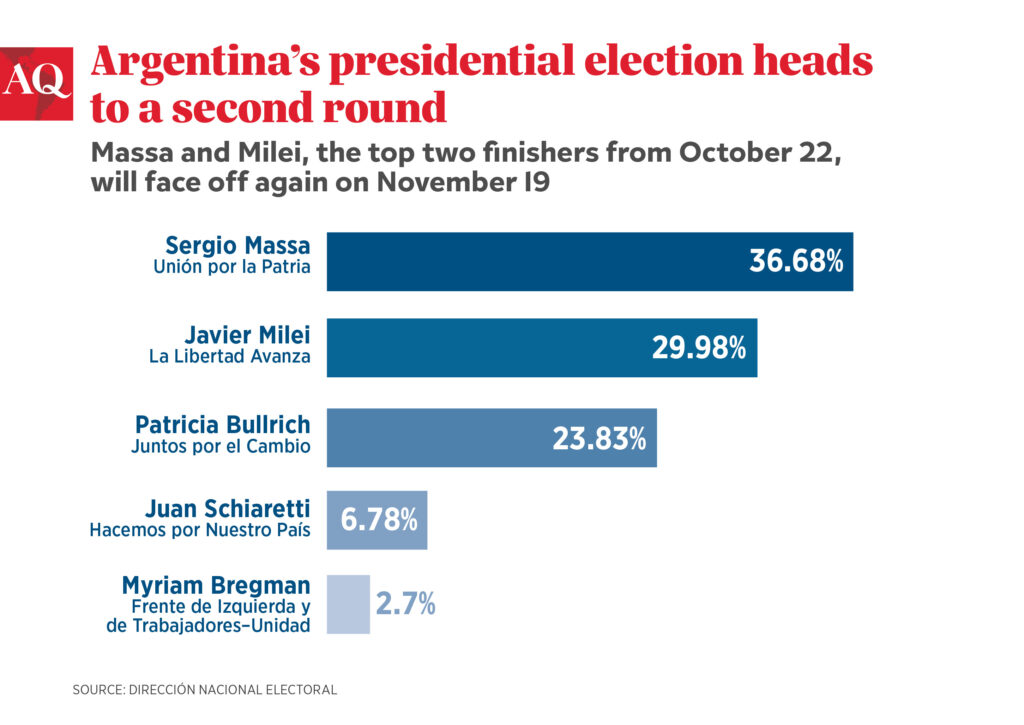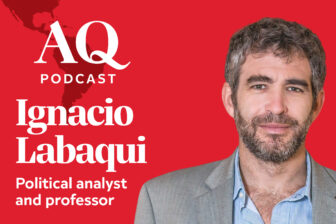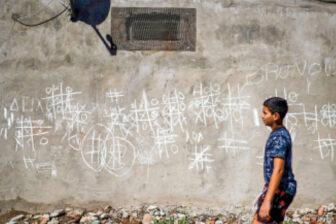On Sunday, October 22, Argentines went to polls to choose their next president. With inflation near 140% in September, economic issues were at the top of voters’ minds.
First place went to current economy minister Sergio Massa (Unión por la Patria), whose 37% vote share improved on his party’s August primary performance. With 30% of the vote, libertarian Javier Milei (La Libertad Avanza) fell short of some expectations but will compete in a November 19 runoff against Massa. Former security minister Patricia Bullrich (Juntos por el Cambio) won 24% of the vote and missed the runoff.
AQ asked observers to share their reaction to the result.
Juan Cruz Díaz, managing director at Cefeidas Group
With the primaries resulting in a three-way tie, a sense of uncertainty surrounded the result of the general elections. There remained the impression that a runoff was the most probable scenario, with Milei undoubtedly securing his place in it. But in light of the sharp economic deterioration in recent months (along with the corruption scandal involving Buenos Aires province cabinet chief Martín Insaurralde), Sergio Massa’s first-place finish and increased vote total were unexpected.
The economy minister’s victory can be attributed to a number of key factors, including his strong performance as a presidential candidate. Following the August primary elections, Massa developed a solid campaign narrative that sought to capitalize on the existing fear in many sectors of society with regard to Milei and his unconventional proposals. The positioning of both Milei and Juntos por el Cambio (JxC)’s Patricia Bullrich on the right of the political spectrum allowed Massa to occupy a vacuum in the center and to present himself as the moderate, consensus candidate among the three. The minister also managed to mobilize both governors and mayors to reactivate the longstanding Peronist territorial capillarity—and regain control of provinces lost in the primaries.
Javier Milei, for his part, decided to radicalize his speech in the final sprint before the elections. Although this allowed him to keep hold of his base and make the runoff, the libertarian leader did not increase his share of the vote compared to August. From now on, Milei will have to try to seduce the voters of Bullrich, who came in third with 24%. But their votes will not necessarily be transferred to Milei due to his strong anti-political establishment rhetoric and the heavy attacks that the libertarian made against the JxC presidential candidate during the campaign.

María Esperanza Casullo, professor at the National University of Río Negro and CONICET
It was a somewhat surprising result for Sergio Massa, given the difficult economic situation many Argentines find themselves in. More surprising was the fact that Milei hardly won any votes beyond those he already got in the PASO. While Massa grew his share by half (winning over three million more votes than his party received in the primaries), Milei only gained 700,000 votes. And he finished with a slightly lower percentage than in the primaries: 29.98% versus 30.1%.
Massa’s road to victory is by no means assured. The economy might collapse with another run against the peso. The majority of Bullrich’s voters are historically anti-Peronist, and yesterday she signaled her closeness to Milei. Milei did moderate his discourse after his loss, and called for a broad opposition front. However, Milei is running from behind, and given how extreme his views were in the run-up to the election, and how moderate and centrist Massa is trying to be, it might be a lot more difficult for Milei to win over less-ideologically inclined voters who might be considering his candidacy.
The economic situation is very difficult for many Argentines. People are angry. But there’s largely a consensus that people don’t want to abandon the basic tenets of democracy and respect for the rule of law, democratic values and human rights. In a way, yesterday’s election was a godsend for Massa: It turned into a plebiscite around democratic values, and not the economic performance of the government.
Some of Milei’s bedfellows, such as the son of the former right-wing Brazilian president Jair Bolsonaro and senior members of the Spanish hard-right party Vox, might be a turn-off to some of those who do not want to back the governing party.
Also, and finally, Peronist voters who had become disenchanted seemed re-energized by Massa’s ambition and stamina. While a substantial part of the Peronist leadership seemed to have become convinced that the elections were irredeemably lost two years ago (among them, Cristina Kirchner), Massa chose to go out, make a plan and fight. If nothing else, his spiritedness appealed to the base.
Brian Winter, editor-in-chief of Americas Quarterly
It’s a tough election to explain to outsiders. Voters don’t usually elect or reelect people responsible for 140% inflation. But they also don’t usually elect people quite like Javier Milei. Now it looks like a very tight race.
This is supposed to be a change election, but Milei’s version of change scared too many people, and he ended up with the exact same 30% he had in the primary. Sergio Massa relied on the still-formidable Peronist electoral machine, plus an old-fashioned burst of government spending—an additional 1.5% of GDP in tax breaks, bonuses to pensioners and more. Massa has also taken just enough distance from the current government, which I know sounds strange, given he’s the economy minister. But many people including in the private sector sense that he is the most moderate or pro-business figure within Peronism, even though he’s the one approving all this spending to get elected. Like I said, it’s not an easy race to explain.
Going forward, the mission for each candidate is clear. Massa has to reach out to some macrista voters. Milei needs to sound like a safe option who can govern. In other words, it will be a contest to see who can sound more sober and reasonable in a profoundly troubled country.
The bottom line: It’s difficult to see right now exactly how Argentina exits from its current crisis. Neither candidate is likely to have a strong mandate. Neither candidate has an obviously viable plan. There’s more doubt than hope.
Diego Pereira, chief economist, Southern Cone and Peru, JPMorgan
The national election results surprised again, this time with Massa outperforming polls against an adverse macro-financial backdrop.
Despite wider macro imbalances, the recent general election results have shown that neither this nor corruption scandals appear as decisive drivers to gauge the performance of the incumbent. More relevant will be how the transference of votes will operate between the different forces, especially the migration of Bullrich’s and Schiaretti’s support.
Following the results, Massa’s words were directed to building bridges with some sectors of JxC, particularly members of the Union Civica Radical, with a strong presence in terms of governors and, thus, the Senate. In a relatively long speech, Massa moved further to the center while also asking for the vote of those who sided with Schiaretti (6.8% of the votes) and Bregman (2.7%). He called for the end of the grieta or political chasm, not mentioning Cristina Fernandez or Nestor Kirchner, and asking for a national unity government. He sharply criticized Milei’s agenda on security, education and labor rights.
On his side, Milei also moved to the center and presented himself as a change figure against Kirchnerism, aiming to attract Bullrich’s voters. Milei sounded more moderate, not mentioning dollarization at all. All in all, JxC will come under stress after the disappointing results, increasing the probability of fragmentation ahead. Against this backdrop, as Massa and Milei now compete for JxC’s votes, we expect a tight, contested and uncertain runoff.






